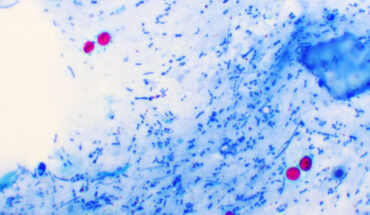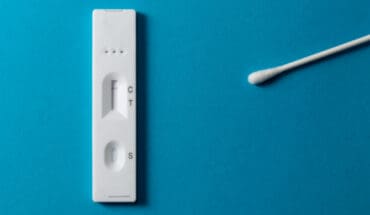Monash University researchers are developing a Covid-19 test to rapidly diagnose active virus infection within an hour: The pilot study is up and running.
Despite reports of a new finger prick blood test being available soon – which tests whether a person has been infected with COVID 19 and therefore may have immunity – the currently available test for the virus, while the patient has active infection with or without symptoms, is expensive and takes up to five days to return a result.
There is an urgent global need for a cheap, fast and accurate diagnostic test that can tell doctors, and the patient, whether they currently have the virus and need to isolate. Such a test, if available, could be used on people returning from overseas, off cruise ships etc – immediately providing authorities with those who run the risk of taking the infection into the community. The test will also be able to provide real time information about the number of active cases to inform important public health decisions.
Scientists at Monash University are currently working on adapting a technology developed two decades ago to create an assay that has the potential to produce a result in less than an hour.
Currently the only test available extracts a kind of genetic material called RNA from a patient’s nose or throat swab, to detect the presence of the virus. The RNA is then turned to DNA to undergo the tried-and-true polymerase chain reaction (PCR) to make many gene copies that can be detected. This method takes several hours and requires expensive equipment, operated by highly trained personnel. Samples are generally done in batches in a laboratory and hence can take days to get a result. This is a real problem when the number of people infected is doubling every 3 days.
The team, led by Professor Patrick Kwan from the Monash University Department of Neuroscience, is one of a number worldwide racing to develop faster genetic tests, based on a method called loop mediated isothermal amplification (LAMP), which takes 30 minutes to an hour. Handheld LAMP tests that could be used in homes and airports may start to become available.
According to Professor Kwan, the advantage of a LAMP-based test is that it requires only a simple water bath, kept at a single temperature (compared to PCR testing which needs a series of different temperatures to work), is highly sensitive and is easy to operate. Therefore LAMP is not only faster, but also cheaper to run than PCR, and can be more readily performed in laboratories that do not have PCR machines. This is particularly relevant not only in the settings of low GDP countries, but also rural areas inside otherwise affluent nations, including Australia.
His group has previously developed LAMP-based tests for different applications including coeliac disease and drug hypersensitivity.
Professor Kwan and his team have already started work on a pilot study of the technology. “My team has extensive experience in mastering the LAMP technology for rapid genetic testing. We will use that expertise to focus on developing a fast, easy to use point of care test that will be able to let doctors and patients know within an hour whether they are infected with COVID 19 and may therefore require treatment or isolation straight away,” he said.
“Such a test is clearly needed to help stop the spread of this disease.”
- New lipid-based pathway discovered as key to memory formation - 25th June 2025
- Crucial link could explain how Alzheimer’s takes hold - 25th June 2025
- Understanding Your Mind Can Improve Daily Life - 25th June 2025







